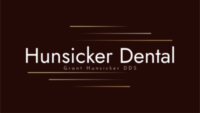When you’re busy, you might find yourself running out the door with toast or eating supper at a fast food restaurant. There aren’t many chances to stop and brush your teeth after a meal! Yet you’ve probably heard the dire warnings from your dentist that you need to start brushing more often, or else risk cavities and tooth decay.
What’s the truth, then? Do you really need to brush your teeth daily?
Unfortunately, the answer is that you definitely should brush your teeth at least once a day, but ideally two to three times. You can’t make up for it by brushing more often some days, either – each day plaque builds up on your teeth is another day the plaque can produce acid and bacteria that causes cavities, harms your gums, and builds up.
If you’re not getting in that toothbrush time, there are a few simple ways to make sure you brush your teeth daily without the hassle:
* Brush your teeth before bed.
Most of us have a constant routine of when and where we go to bed. If you incorporate brushing your teeth into your bedtime routine, you can ensure that you get at least one brush in every day. When you’re on the road, bring a travel toothbrush and a travel-sized tube of toothpaste so you can keep up the routine, and if you live between more than one house, keep a toothbrush at each place.
* Make sure your toothbrush is soft.
You might be more reluctant to take the time to brush your teeth if it’s going to hurt. Choose a soft toothbrush that won’t harm your gums or cause them to bleed. You’ll spend less time picking out stubborn bits and cringing at your red gums if you start with a soft toothbrush. Also, if you brush your teeth infrequently, your gums will be much more sensitive, so accommodate for this with your brush.
* Learn how to efficiently brush.
You should start brushing the side of your teeth that touches your cheek, where bacteria can easily get trapped. Do a few small strokes back and forth along two or three teeth at a time, several times along each tooth to ensure you’re getting all the plaque. Then, brush the inside of your teeth in the same manner, keeping your tongue away for now. Finally, make sure you brush the flat surfaces to root any food bits out of hiding spots. Finish up with a quick stroke or two over your tongue for fresh breath.
* Remember to floss.
If you always floss right after you brush your teeth, you will remember to do so. This is just as important, as it targets the little bits that get stuck where your toothbrush can’t reach and will improve your gum health significantly. The floss should wrap around the teeth it is in between – once around one tooth, then once around the other – for ideal flossing efficiency.
No matter how busy you are, remember the alternative: gum disease, painful cavities, root canals, and time-sucking dentist trips. A quick brush of your teeth at least once daily will help ensure that your mouth stays healthy and fresh.

